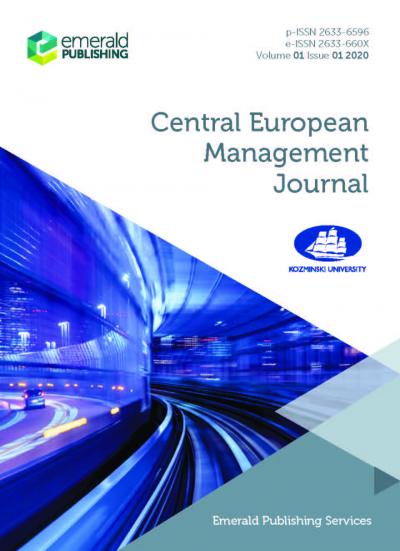Economic Identities: Four Paths Out of the “Iron Cage”
Witold Morawski
Kozminski University
2016 24 (4) Central European Management Journal
DOI 10.7206/jmba.ce.2450-7814.179








